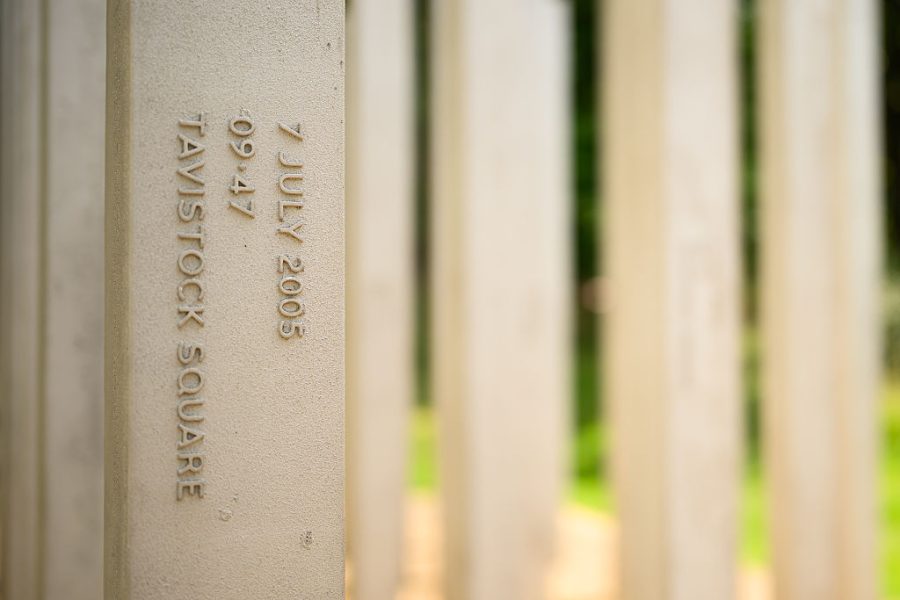‘Bear in mind these dead, I can find no plainer words,’ wrote the Northern Irish poet John Hewitt reflecting on the Troubles’s terrible death toll. How we remember the victims of terrorism and articulate the harm it causes comes to mind today, the 20th anniversary of the 7/7 Islamist attack on London’s transport network. The bombings killed 52 commuters and sentenced hundreds more to a life without limbs, eyes or peace of mind.
Not everyone can or should subscribe to ‘don’t look back in anger’
Many of the victims of 7/7 have spoken in detail about how they have used sometimes miraculous escapes to reframe their lives and give them new purpose. Others have spoken about the freedom and closure of forgiveness. Those who have suffered inconceivable pain through the sudden kinetic brutality of terrorism, either as victims or the bereaved, have every right to process how they make sense of it in their own way. But I worry that the busy hand of reconciliation that seems to elevate forgiveness above all other reactions leaves those simply – and legitimately – angry untouched.
Much is made of the Christian instinct to forgive those who trespass against us. The father of Marie Wilson, murdered in the 1987 Enniskillen bombing, became famous around the world for forgiving the terrorists who killed his daughter in the rubble feet away from him. It exposed the moral vacuity of the IRA’s campaign like nothing else could. But for every Gordon Wilson, there are other victims of terrorism who cannot forgive and who will not move on. Their experience is every bit as valid.
In the Christian tradition, forgiveness is also contingent on repentance. In the case of 7/7, there is no one left to seek absolution for their grave sins. The suicide bombers denied their victims any possible closure in a final act of nihilistic wickedness. Subsequent attacks by Islamist militants have only demonstrated an increasingly depraved indifference to human life. Several survivors of the atrocity have said they still see the faces of the four bombers whenever they close their eyes. There may be forgiveness for some. But for many there is no forgetting this side of the grave.
I have sat with several victims of terrorism who are implacably consumed with hatred for what has been done to them or theirs. The fashionable consensus is that these people damage only themselves with unrelievable rage. Many well-meaning clinicians argue that letting go of such emotions and moving on with life is the psychologically healthy option. We must be extremely wary of somehow labelling such emotions as a ‘second-class’ response.
Anger can sometimes give birth to new purpose or even a way of going on for those affected. Not everyone can or should subscribe to the ‘don’t look back in anger’ Disneyfication of events like the Manchester Arena bombing. Candles and flowers are a natural expression of community grief and resilience but the closer you are to the epicentre of a terror attack, and the more they happen regardless, the more alienating reflexive forgiveness can seem.
Survivors of the 7/7 bombing have found their own way to handle what was done to them. All responses, including simply wanting to forget, are equally valid and must be endowed with the same dignity. The government is currently considering the idea of a national day of remembrance for the victims of terrorism. Any arrangements must not seek to constrain the different ways people process violence against them or their loved ones.
Gill Hicks, a 7/7 survivor, provides another perspective. She lost both legs and spoke movingly on the BBC’s Women’s Hour today about her ordeal. An extraordinary presence of mind kept her alive, fixing tourniquets to her shattered limbs. Other survivors spoke about fellow passengers holding the dying as they slipped away, the heroic emergency response, the comfort of strangers in an inconceivable hellscape of noise, dust and suffering, the forging of lifelong friendships in adversity. These behaviours cannot defeat the terrorists. But they signal something beyond their comprehension which we can use on days like these: they will never crush love.








Comments